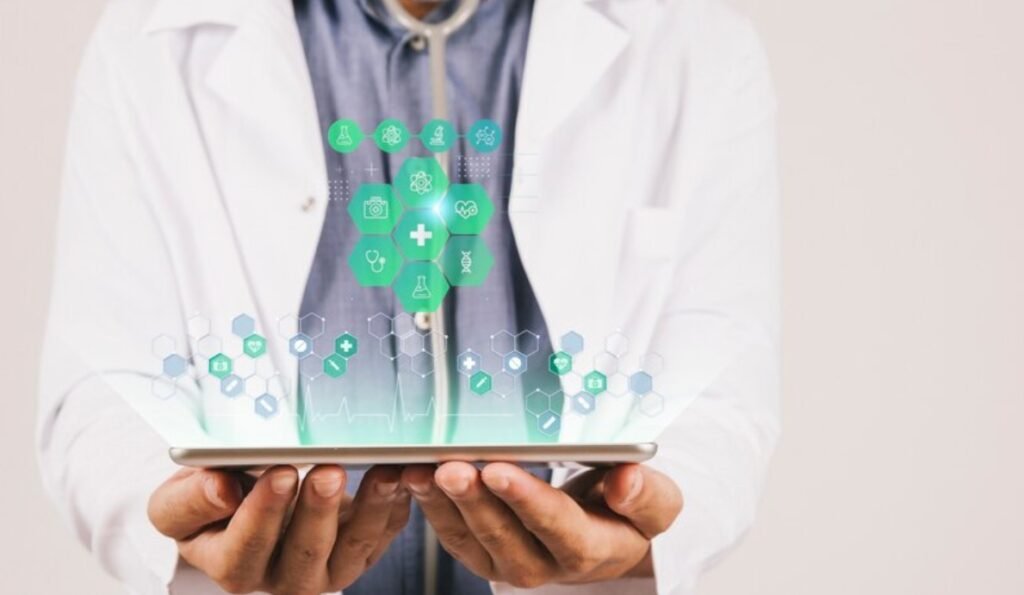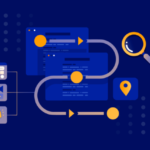The advent of technology has significantly impacted various industries, and healthcare is no exception. In recent years, medical app development has become a cornerstone in the digital transformation of healthcare systems worldwide. The healthcare sector has embraced mobile applications for enhancing patient care, improving accessibility to medical services, streamlining healthcare processes, and even ensuring better communication between patients and medical professionals. This article will explore the different aspects of medical app development, including its significance, types, benefits, challenges, and the future of healthcare applications.
What is Medical App Development?
Medical app development refers to the process of creating mobile applications designed specifically for the healthcare industry. These applications aim to serve patients, doctors, healthcare organizations, and other stakeholders within the healthcare ecosystem. These apps can cater to various healthcare needs, ranging from managing patient health records, booking medical appointments, tracking physical activity, providing mental health support, and assisting in medical research.
With the growing importance of telemedicine, the demand for medical app development has skyrocketed. Today, a significant portion of patient care involves mobile apps that help with diagnostics, medication tracking, and offering real-time consultation.
Types of Medical Apps
The broad scope of healthcare services and requirements has led to a variety of medical app development projects. These apps can be categorized into several types, based on their functionality and purpose.
1. Health Monitoring Apps
Health monitoring apps are among the most widely used mobile applications in the medical field. These apps help individuals track their health parameters such as blood pressure, heart rate, glucose levels, calories burned, and physical activity. Medical app development in this category allows users to monitor their vitals, set reminders for medication, and track their fitness progress.
2. Telemedicine Apps
Telemedicine has become an essential part of modern healthcare, especially with the onset of the COVID-19 pandemic. Medical app development for telemedicine allows healthcare professionals to consult with patients remotely via video calls, phone calls, or text-based communication. These apps are particularly beneficial for patients in rural areas where medical facilities may be limited.
3. Appointment Scheduling and Management Apps
Efficient scheduling and appointment management are crucial for healthcare providers. Medical app development has made it easier for patients to book appointments online and receive reminders, thereby reducing the chances of missed appointments. For healthcare providers, these apps streamline the scheduling process and improve overall office management.
4. Medication Management Apps
Medication management apps help patients remember to take their medications on time and track their prescription history. These apps also provide crucial information about drug interactions and potential side effects, which can be beneficial in preventing adverse reactions. For doctors, these apps offer a tool for reviewing patient prescriptions.
5. Mental Health Apps
Mental health is as important as physical health, and many apps now focus on supporting individuals who face mental health challenges. Through medical app development, patients can access guided therapy sessions, relaxation techniques, meditation, cognitive behavioral therapy (CBT) exercises, and other tools to manage stress, anxiety, and depression.
The Importance of Medical App Development
Medical app development is driving a major transformation in healthcare. These apps have revolutionized how healthcare providers and patients interact, providing many benefits for both parties. Let’s explore why medical app development is so important in today’s healthcare environment:
1. Improved Patient Engagement
Medical apps allow patients to have more control over their healthcare. From managing their medications to tracking their health vitals, patients can stay informed and actively participate in their care. This increased involvement in healthcare decisions has been linked to better patient outcomes.
2. Enhanced Accessibility
Mobile apps help bridge the gap between healthcare providers and patients by offering more accessible services. With apps for telemedicine, health monitoring, and even prescription refills, patients no longer have to travel long distances to access essential healthcare services. For patients with mobility challenges or those in remote areas, this convenience is invaluable.
3. Better Communication Between Doctors and Patients
Effective communication between doctors and patients is key to providing quality healthcare. Medical app development enables real-time communication between healthcare professionals and patients, reducing wait times and improving the overall quality of care. With features like in-app messaging, video consultations, and instant notifications, these apps foster transparent communication.
4. Cost Savings
Healthcare costs can be significantly reduced by implementing medical app development. Telemedicine, for example, reduces the need for in-person consultations, which can be both time-consuming and costly. Additionally, preventive care apps help reduce emergency visits and hospitalizations by enabling users to monitor their health and seek timely medical interventions.
5. Data Management and Analytics
Healthcare is a data-driven industry, and medical apps allow healthcare professionals to manage vast amounts of patient data in an organized, secure manner. Through medical app development, patient records, test results, and medical history can be stored electronically, making it easier for doctors to make informed decisions. Moreover, these apps can also analyze patterns in patient data, leading to more personalized care.
Challenges in Medical App Development
While medical app development offers numerous advantages, it also comes with its own set of challenges. Developers must navigate several obstacles to ensure the app functions properly and complies with regulatory standards.
1. Regulatory Compliance
Healthcare is one of the most regulated industries, and medical app development must adhere to strict guidelines, such as HIPAA in the United States, to ensure patient privacy and data security. Failure to comply with these regulations can lead to serious legal consequences, making compliance a top priority for developers.
2. Data Security and Privacy
Security concerns are another major challenge in medical app development. Healthcare apps deal with sensitive patient data, and any breach could compromise the trust between healthcare providers and patients. Developers must implement robust security measures such as end-to-end encryption and multi-factor authentication to safeguard this information.
3. User Experience (UX)
For a medical app to be effective, it must offer a seamless and intuitive user experience. Medical app development should prioritize user-friendly interfaces, especially since many users may not be tech-savvy. Ensuring the app is easy to navigate, even for elderly patients or those with disabilities, is essential.
4. Integration with Existing Systems
Many healthcare providers use Electronic Health Record (EHR) systems and other software. A medical app must be compatible with these existing systems to ensure smooth data flow between the app and the healthcare provider’s infrastructure. Developing apps that can integrate seamlessly with these systems is one of the key challenges in medical app development.
The Future of Medical App Development
The future of medical app development looks promising, with continued advancements in technology opening new possibilities for healthcare applications. The integration of Artificial Intelligence (AI), Machine Learning (ML), and wearables will further enhance the capabilities of healthcare apps.
1. AI and Machine Learning
AI and machine learning algorithms have the potential to revolutionize medical app development by enabling predictive analytics. For instance, AI-powered apps can predict health conditions based on user data, offer personalized treatment plans, and assist in medical diagnoses.
2. Wearable Devices
Wearable devices, such as smartwatches and fitness trackers, are increasingly being integrated into medical app development. These devices can track vital signs in real-time, and when paired with mobile apps, they provide valuable insights into a person’s health. This integration will continue to improve the accuracy and efficiency of healthcare delivery.
3. Blockchain Technology
Blockchain technology is being explored for medical app development to enhance data security and ensure transparency. It has the potential to provide a decentralized way of storing medical records, ensuring that patient data is tamper-proof and easily accessible by authorized parties.
Conclusion
Medical app development is transforming the healthcare landscape by offering innovative solutions to a wide range of challenges. From improving patient engagement and accessibility to enhancing data management and communication, mobile healthcare apps are reshaping how healthcare is delivered. As technology continues to advance, the future of medical app development will undoubtedly bring even more opportunities to revolutionize the industry, offering more personalized, efficient, and secure healthcare experiences for patients and providers alike.


